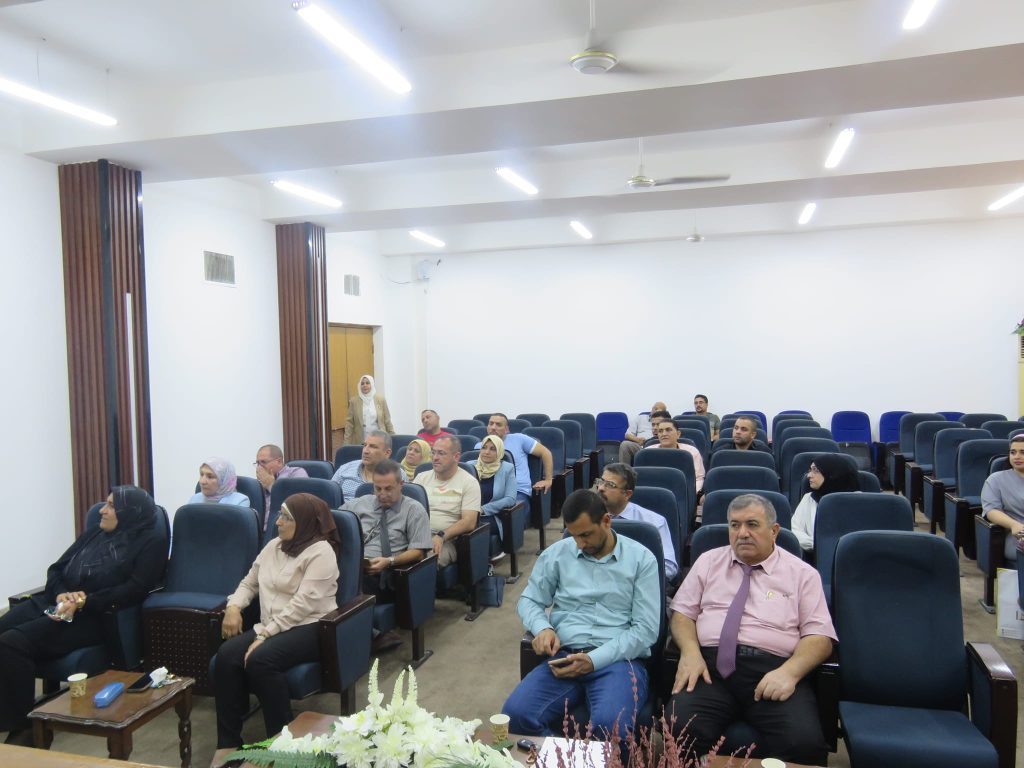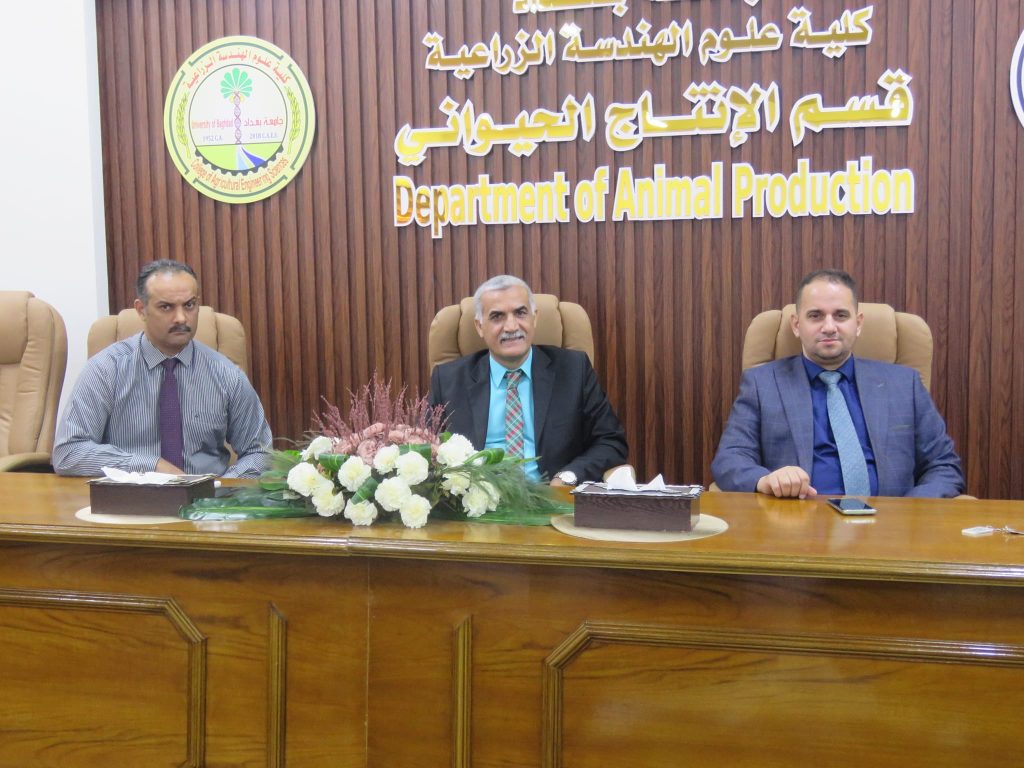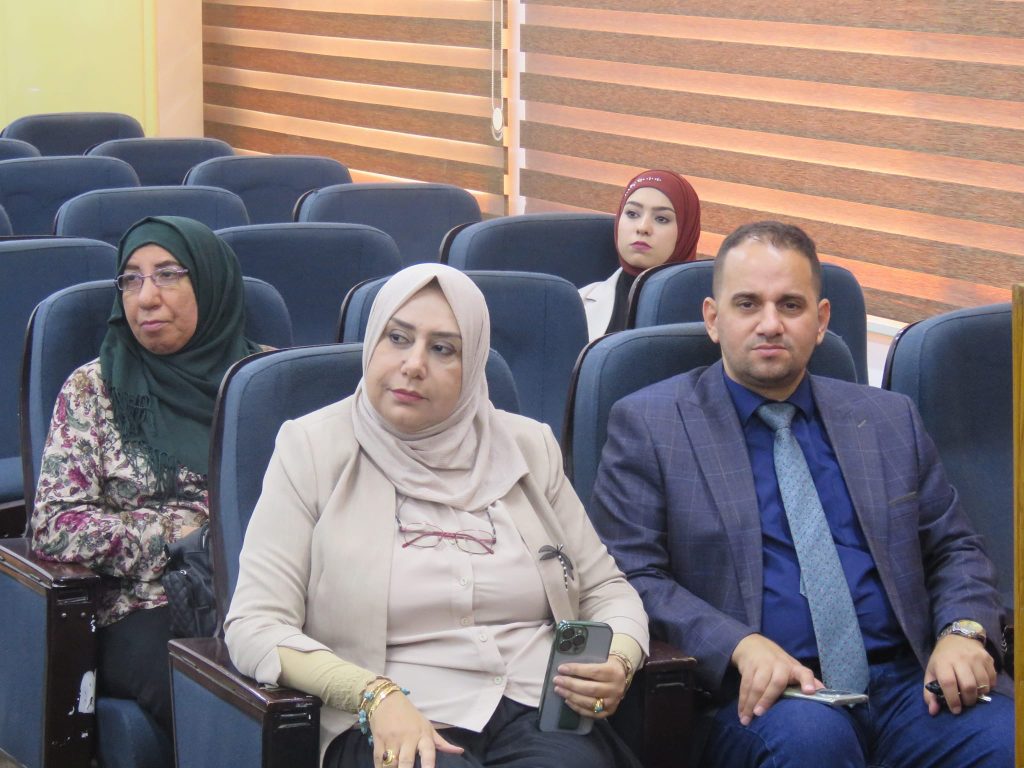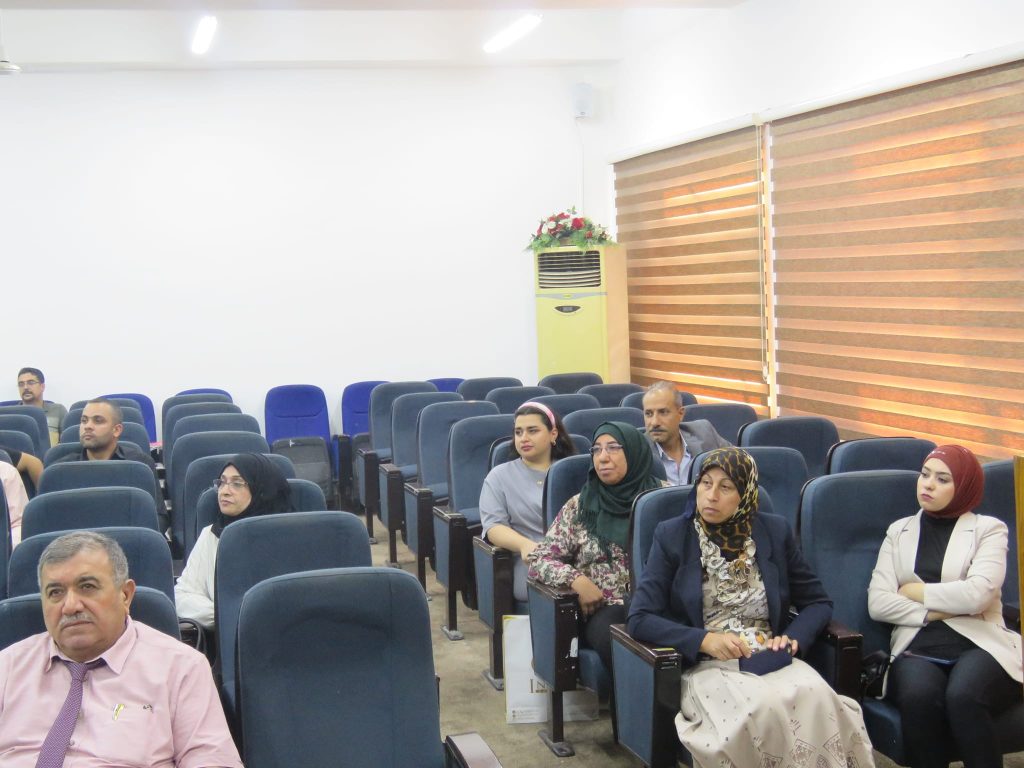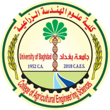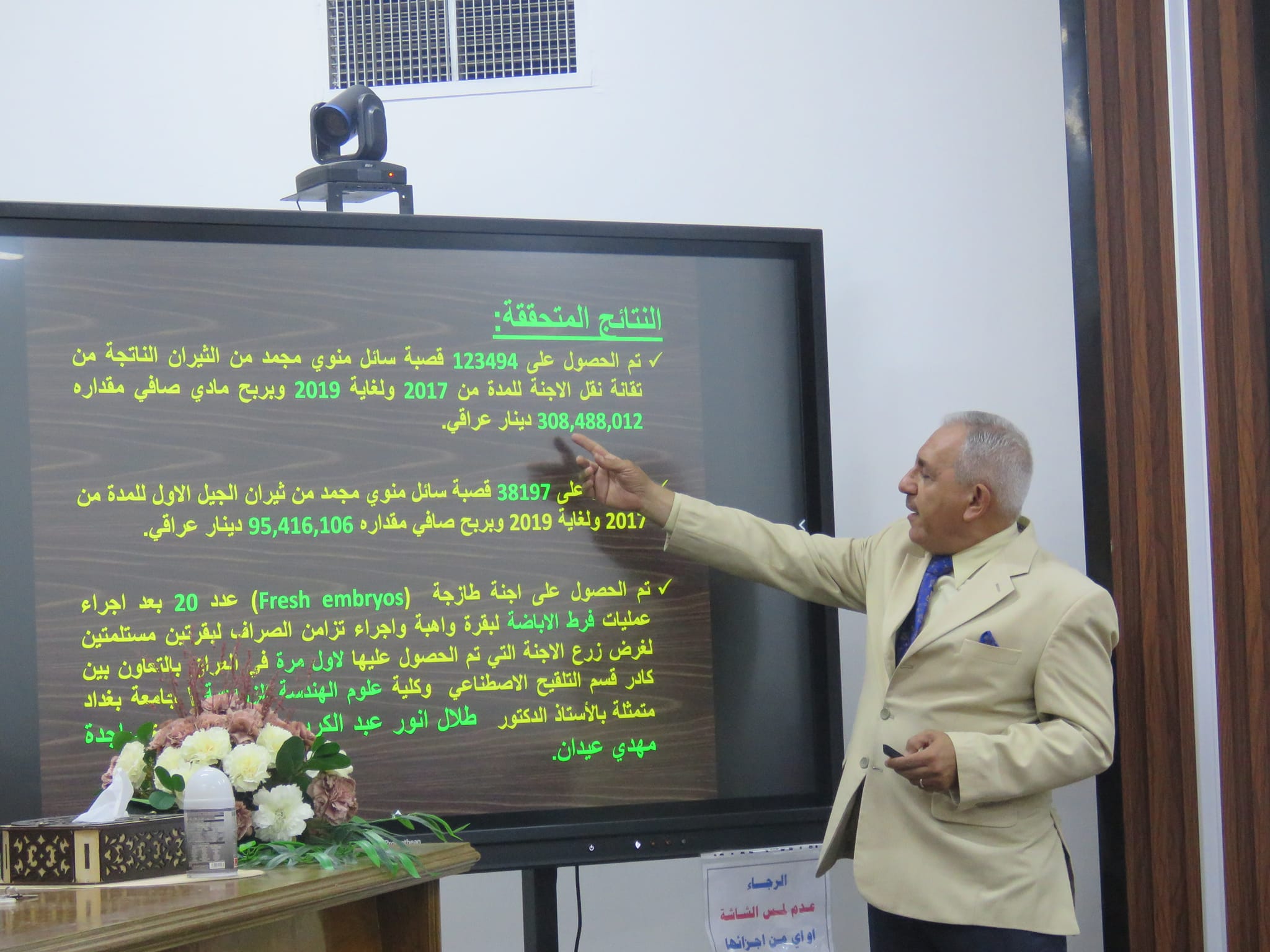As part of the activities of the Global Entrepreneurship Week organized by the University of Baghdad, Professor Dr. Talal Anwar Abdul Kareem delivered a specialized scientific lecture titled “The Embryo Transfer Project for Cows in Iraq.” The lecture was attended by the Dean of the College, Professor Dr. Amera Mohammed Saleh, and Professor Dr. Hussam Jasim Hussein, the head of the Animal Production Department, along with several faculty members from the department and postgraduate students.
The lecture revealed that this project was established in cooperation between the Department of Animal Resources in the Ministry of Agriculture and the Food and Agriculture Organization (FAO) and under scientific supervision of Professor Dr. Talal Anwar Abdulkareem and Professor Dr. Sajeda Mahdi Eidan from the Department of Animal Production – College of Agricultural Engineering Sciences at the University of Baghdad. The project launched in 2009 by importing frozen embryos of the New Zealand Holstein breed. It also aimed to adapt embryo transfer technology in Iraq and obtain genetically- superior bulls used for collecting semen and producing straws for artificial insemination of cows adapted to the Iraqi environment as well. Forty-five births were obtained, including 18 calves and 27 heifers of purebred Holstein. Moreover, there were 13 births of the first generation (F1) bulls, including nine calves and four heifers simultaneously. Furthermore, 161,691 semen straws were obtained, with a net financial profit of 403,940,118 Iraqi dinars for the period from 2017 to 2019. The bulls resulting from the embryo transfer and the F1 generation were evaluated in 2021 by a master’s student. He found that these bulls excelled in most Semen characteristics compared to imported bulls. These results were published in the Iraqi Journal of Agricultural Sciences in 2022.
